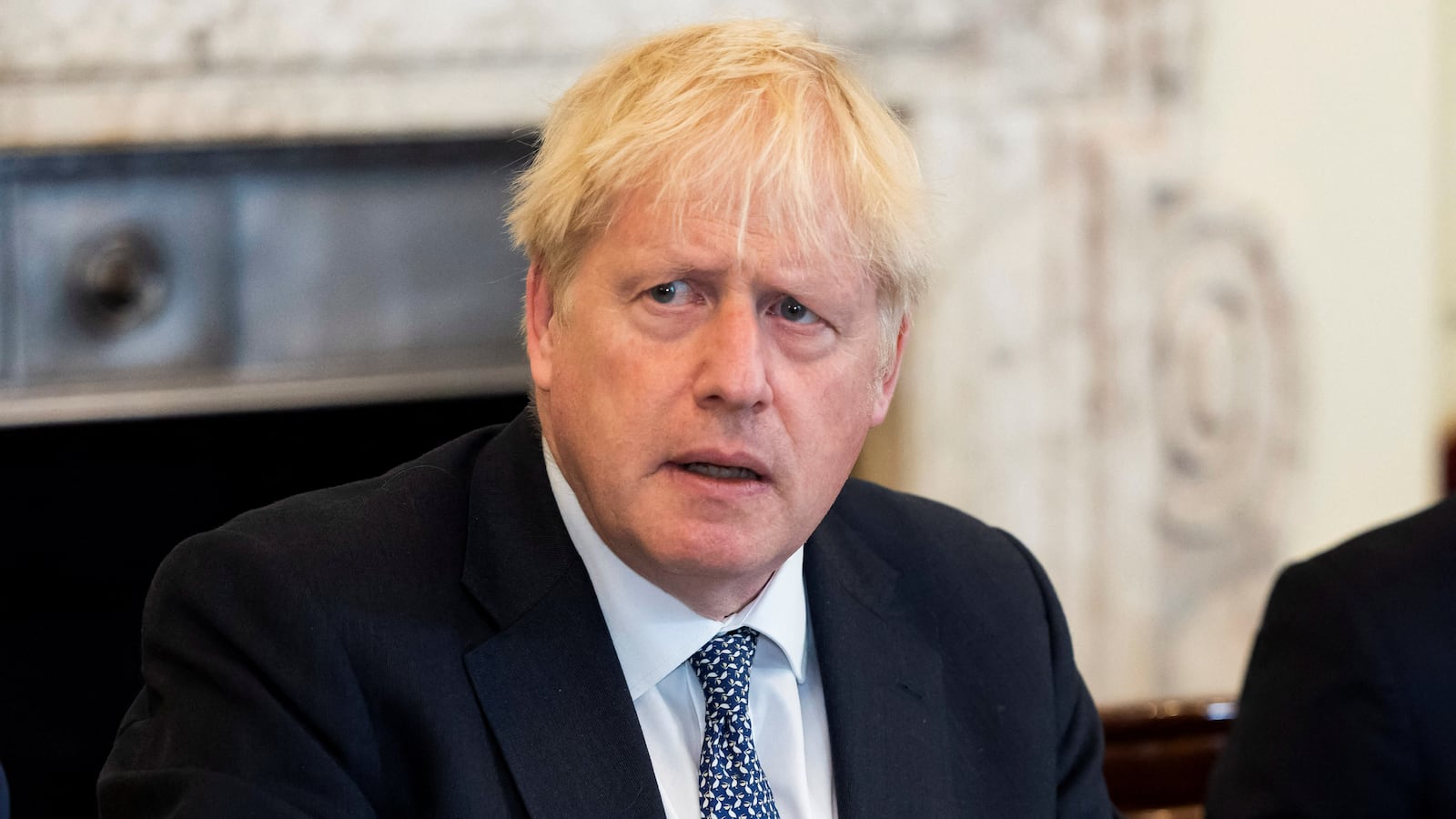After losing two of his most senior ministers in a matter of minutes on Tuesday, an aide reportedly asked Boris Johnson if he was going to resign.
“Fuck that,” he replied.
The humiliating losses from Johnson’s cabinet came as he apologized on television for his latest scandal: his appointment of Chris Pincher, an alleged serial sex offender, to a key government role, and then lying about having ever known of any allegations against Pincher.
Both of the bombshell resignations partly blamed Johnson’s flagrant disregard for accountability. Rishi Sunak, Britain’s outgoing finance minister, said a government is expected to meet some basic standards of competence and seriousness. “I believe these standards are worth fighting for and that is why I am resigning,” Sunak said. Sajid Javid, Johnson’s appointed health minister, said he could no longer serve in the government “in good conscience,” adding that the British public “rightly expect integrity from their Government.” Chris Skidmore, a Tory lawmaker, branded Johnson’s actions an “effective cover up of sexual abuse” in an excoriating open letter calling for colleagues to topple the prime minister on Wednesday.
It’s curious that his close cabinet colleagues would suddenly find Johnson’s leadership intolerably lacking in integrity in the wake of the latest scandal. After all, Johnson has made malfeasance—and getting away with it—into something like a performance art. Before the Pincher scandal, mysteriously vanishing reports in the British media alleged that Johnson had tried to give a high-paid government job to his then-mistress-now-wife Carrie while he was foreign minister. Also in June, his ethics adviser stood down over a plan to protect British industry that would “deliberately breach” Johnson’s own ministerial code. And this came in the wake of the Partygate scandal, in which Johnson was found to have attended a series of alcohol-fueled lockdown-breaking parties inside Downing Street. The list goes on and on.
So why the sudden pangs of conscience about integrity? A damning double electoral defeat at the end of June—seen as an important barometer for Johnson’s popularity—just might have something to do with it.

A board showing betting odds on Johnson's future outside the Houses of Parliament in London on Wednesday.
HENRY NICHOLLS/REUTERSA torrent of further resignations followed Sunak and Javid’s; by early-evening in London on Wednesday, over 30 government ministers and aides had quit. But while hemorrhaging senior lawmakers on the grounds of integrity might be enough to bring down most prime ministers, this is Boris Johnson: a man who, according to his critics, has turned No. 10 into a machine for defending his interests instead of the interests of the British people. He quickly reshuffled his cabinet Tuesday evening to replace the leavers and signaled he was going nowhere. Even as the resignation letters stacked up on his desk on Wednesday, Johnson vowed in the House of Commons that he would “hang on in there.”
The pressure continued to build as the day wore on. As Johnson answered lacerating questions about his leadership at a parliamentary committee, a cabal of senior lawmakers gathered in Downing Street to tell him to resign on Wednesday evening. Among those believed to be waiting to tell Boris they'd lost faith in him was Nadhim Zahawi—the man Johnson chose to be his new finance minister less than 24 hours earlier.
At least until he’s forced out. After narrowly failing to oust Johnson in a vote of no confidence last month, rebel lawmakers in the Conservative party are now sharpening their knives once again, fearing they’ll be annihilated at the next general election if Johnson remains the leader. They’ll feel emboldened by this week’s high-profile resignations and will look to use a change in party rules to mount a new bid to defenestrate their prime minister. Currently, Tory regulations state that Johnson shouldn't face another vote of no confidence until a year has passed since the last one. But if the rebels get their way at an election on Monday to the executive of the 1922 Committee—a body which represents Tory lawmakers who aren't in the government—they’ll do away with the convention in order to hold a new vote on dumping Johnson as soon as possible.
Of course, it’s entirely possible Johnson will see the writing on the wall and resign of his own volition. But for now at least, it looks like the Johnson circus will go on for at least a little longer. The question is: How long?






